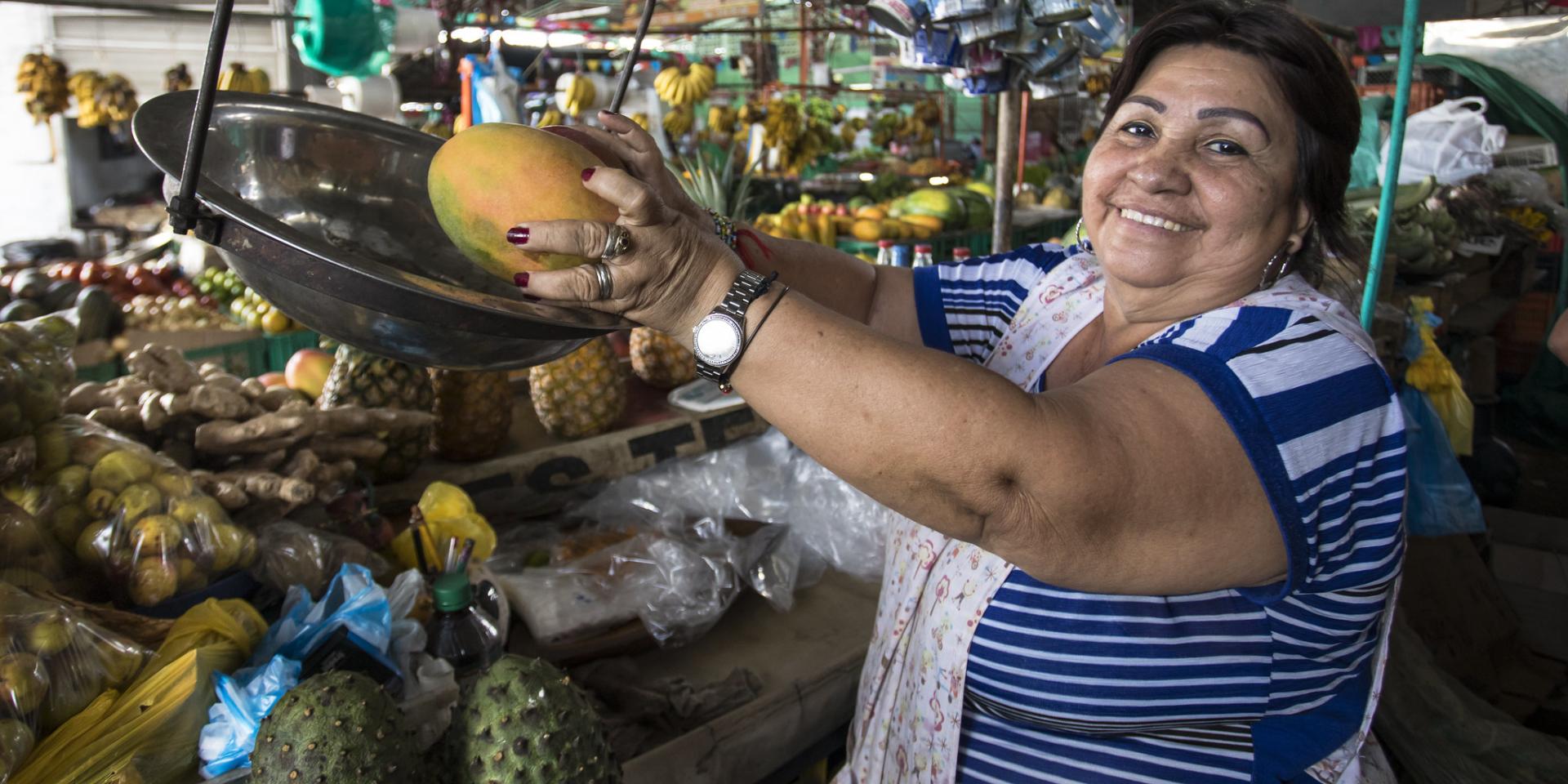Making trade policy inclusive

This course will equip participants with a comprehensive understanding of different aspects of inclusive trade, the skills and knowledge to shape an inclusive trade policy agenda, as well as the political economy realities of trade and trade negotiations.
This course is in English
What will you learn?
At the end of the course you will:
- Have a critical understanding of inclusive trade: key aspects of inclusion, actors, organisations and issues in trade and development.
- Be able to apply conceptual and analytical tools to analyse trade policy, political economy and development issues.
- Be better equipped to analyse sources of data and evidence.
- Understand the links between trade, poverty, and gender; and, trade, human rights, and sustainability.
- Have gained experience of analysing specific cases on trade in agriculture, services and digital trade.
What resources do you need to do it?
You will need an internet connection sufficient to stream live video (Zoom, Facetime or similar) in order to engage fully with the course.
More about this training
This course provides a comprehensive package to advance understanding of inclusion in international trade and trade policy – covering poverty, gender, human rights, sustainability and power asymmetries.
Delivered by the Institute of Development Studies, InterAnalysis and the UK Trade Policy Observatory at the University of Sussex, the course speaks to the call for making international trade and trade policy choices work for development.
You will gain skills to engage with and shape trade and trade policy with an inclusive development agenda at the core.
The idea that international trade generates winners and losers is well-established in the development economics and political economy literature – posing the more challenging question of what can be done about it. Several mechanisms, interventions and development programmes have been designed to come to grips with the reality of identifying the heterogeneous effects from trade and supporting those affected by changes in trade policy and trade flows – individuals, communities or areas that lose out. However, it has remained complex to capture the full extent of direct and indirect effects of these changes, with deep intricacies and asymmetric bargaining power between actors. This challenge has been exacerbated with increased trade restrictions; trade wars between larger economies; and, more recently, the Covid-19 pandemic that has created unprecedented disruptive effects.
The vision of a truly progressive trade policy does not imply restricting trade but stimulating trade with a core commitment to identifying pathways to trade and trade policy that result in inclusive development outcomes. This makes an understanding of inclusive trade and trade policy essential for governments, international development professionals, researchers, and students: who can understand and apply informed choices in trade and development.
Who should attend
Practitioners, policy professionals, researchers and students with an interest in trade, equality, equity, political economy, and sustainability.
How you will learn
You’ll learn through a combination of live online teaching, pre-recorded lectures, group work and independent study. This includes:
- Live introductory sessions which outline your learning objectives and resources, and incorporate short, facilitated activities.
- Self-directed learning supported by pre-recorded lectures and tasks.
- Live group sessions with Q&A and exercises.
- Guest lectures with renowned experts.
- Feedback and follow-up with instructors.
A pre-course induction, to introduce the digital learning platform and help you with any technical queries, will take place in the first week. The course will run over four weeks, dates are to be confirmed based on interest. It will require four to six hours of your time per week.
The course has been designed to allow you to work as flexibly as possible but approximately two hours per week will be made up of scheduled sessions at fixed times.
You will be assigned a course facilitator and to a small study group and be able to keep the conversation going via a dedicated online channel throughout the course. Pre-recorded lectures, presentations and reading materials will be made available in advance.
Who can I contact for more information?
To register your interest in future sessions, please contact us at: shortcourses [at] ids.ac.uk
Access now
https://www.ids.ac.uk/specialist-short-courses/making-trade-policy-inclusive-online/